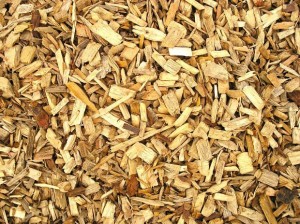“Kermit’s Song” notwithstanding, it can be fairly easy being green. Take, for example, making fuel from scrap wood chips.
A ll over the world, scientists are hunting for alternative fuels of the future. In our own state, a research team recently introduced its new technology at a wood-chipping plant located in the sylvan outskirts of Cle Elum, Kittitas County. Since wood chips by themselves are pretty much worthless, it’s plain old commonsense to put them to work. Why not put them to work making energy? The research demonstrated that if you roast the chips, they turn into a bio-oil not unlike petroleum and a flammable gas to operate the burners. This roasting process, still further, also produces something called a bio-char, which can be used in water-filtration and as a soil additive in farming.
ll over the world, scientists are hunting for alternative fuels of the future. In our own state, a research team recently introduced its new technology at a wood-chipping plant located in the sylvan outskirts of Cle Elum, Kittitas County. Since wood chips by themselves are pretty much worthless, it’s plain old commonsense to put them to work. Why not put them to work making energy? The research demonstrated that if you roast the chips, they turn into a bio-oil not unlike petroleum and a flammable gas to operate the burners. This roasting process, still further, also produces something called a bio-char, which can be used in water-filtration and as a soil additive in farming.
This recent wood chips-to-fuel demonstration was hosted by the state Department of Natural Resources (DNR). Research in this arena also reflects demand for an answer to a serious threat in our forests: Dense woods are in desperate need of thinning, which would go a long way toward preventing wildfires and thwarting diseases.
Along these alternative-energy lines, alert legislative followers will almost certainly recall the successful House Bill 1422 from the year 2011. This Democratic prime-sponsored and bipartisan co-sponsored measure built on the earlier Forest Biomass Initiative. The legislation set up a biomass pilot project to study the idea of creating jet fuel from wood waste. According to DNR: “[The fundamental mission] of the biomass initiative is to fill a void in assembling people to forge public-private partnerships among forest biomass suppliers, biomass purchasers, energy producers, communities and state agencies to utilize biomass materials for renewable energy generation.” Manufacturing jet fuel more economically and environmentally correct is the right thing to do in view of the fact that its consumption has grown so much over the past quarter-century.
